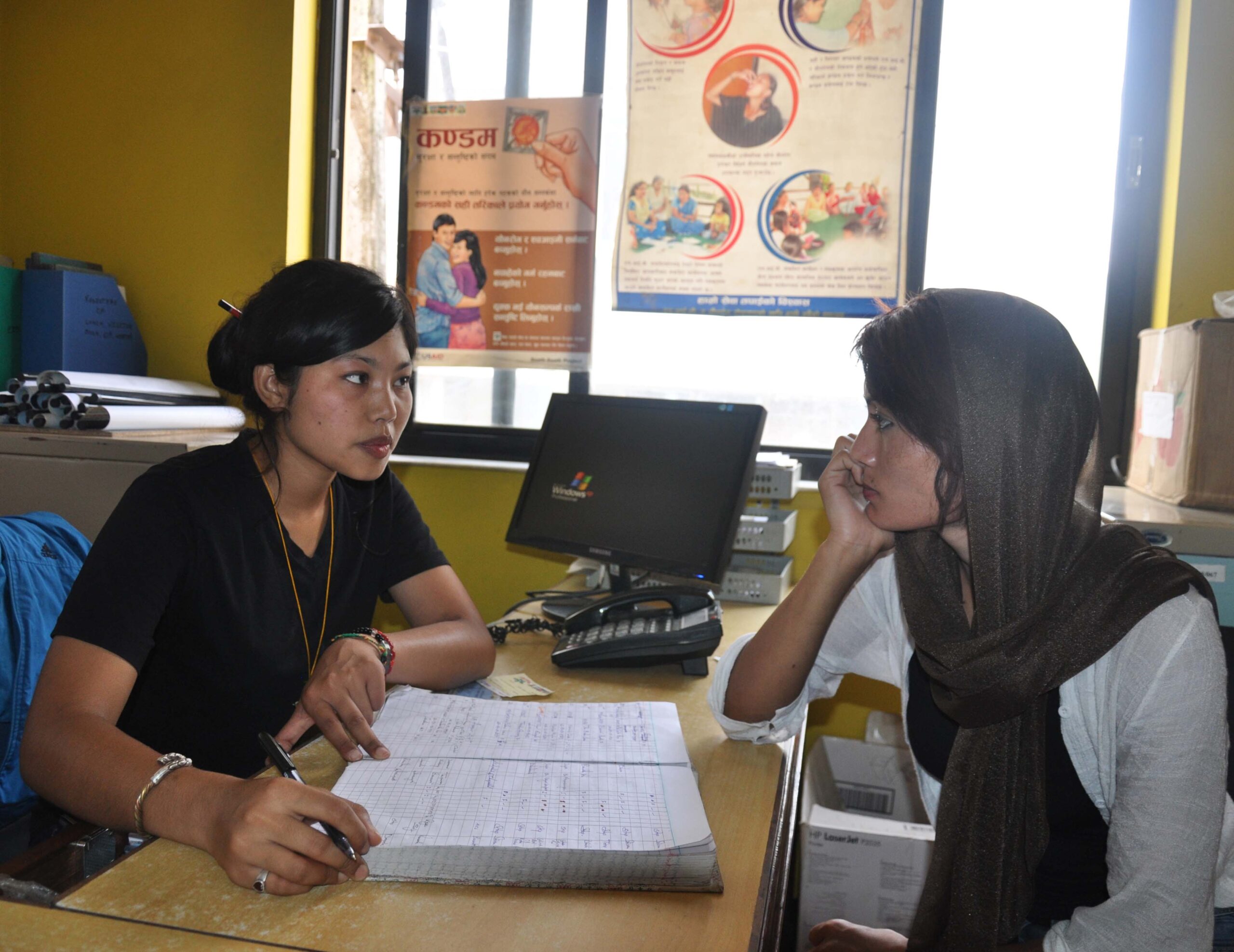Pooja Pradhan, Team Leader, Gender-Based Violence Prevention and Mitigation Services, FHI 360
LINKAGES recently interviewed Pooja Pradhan, Team Leader of the Gender-Based Violence Prevention and Mitigation Services at FHI 360 on the Saath-Saath project (SSP), a USAID-funded project in Nepal managed by FHI 360. Now in its fourth year and operating in 33 out of 75 districts in Nepal, SSP has made significant strides in reducing the transmission and impact of HIV as well as in improving reproductive health among key populations, particularly female and transgender sex workers and their clients. We asked Pradhan to describe the ways in which SSP has integrated gender-based violence (GBV) prevention and mitigation in its programming for key populations. Below is an inside look into how SSP increases the awareness of, access to, and use of GBV prevention and mitigation services while simultaneously working to strengthen the legal and policy environment so that acts of violence are criminalized appropriately.
Q1: How is violence that is perpetrated against transgender sex workers (TGSW) different from violence perpetrated against female sex workers (FSWs)? Are the perpetrators the same? Are the causes of violence the same? Are the types of violence the same?
Transgender people who work as sex workers do not usually disclose themselves as sex workers in the family and community because they are already discriminated against for being a transgender person. TGSWs experience various types of violence from their clients, such as economical violence (not being paid after having sex), sexual violence (sex without consent by a group and sometimes without condom), physical violence (being beaten by law enforcement officials and clients), and psychological violence (being subjected to shouting and name-calling). Fewer TGSWs report having faced partner violence than FSWs. However, violence from family members is also common among TGSWs.
The causes of violence among FSWs and TGSWs are the same. The perpetrators treat them as objects. Because sex work is conducted covertly, violence is often committed without any consequences to the perpetrators. Although the types of violence among FSWs and TGSWs are mostly the same, there is higher psychological violence to TGSWs because of their sexual orientation.
Q2: How does SSP’s violence response initiative reach out to trans sex workers? How, if at all, is this different from the way FSWs are reached?
In order to implement GBV prevention and mitigation services, SSP works in close collaboration with the national network of FSWs — Jagriti Mahila Maha Sangh (JMMS) — and the national network of lesbian, gay, bisexual, and transgender (LGBT) people — Federation of Sexual and Gender Minorities in Nepal (FSGMN). The GBV prevention and mitigation services are provided in the six districts for TGSWs through the community-based organizations of FSGMN and services for FSWs are provided through SSP’s local NGO partners and JMMS. The prevention services include creating awareness about and demand for GBV prevention and mitigation services among the TGSWs. This is done through community mobilization and peer-based outreach, which provides one-on-one and group education on GBV recognition and prevention.
Training sessions on GBV recognition and prevention are also conducted for the beneficiary group. The training package tailored to TGSWs and FSWs covers the definition of GBV; its forms, causes, consequences, and preventive measures; how GBV and HIV are often linked; stigma and discrimination associated with GBV; and the services available at the SSP and other service sites. TGSWs referred from outreach and training sessions are provided with GBV-related clinical services at clinics run by FSGMN. Service providers trained in GBV-related clinical services screen for GBV, offer psychosocial counseling services, and treat minor injuries related to GBV cases. They also provide voluntary counseling and testing and testing and treatment for other sexually transmitted infections.
Q3: Do you all sites have standard operating procedures for serving TSWs who have experienced violence?
SSP developed standard operating procedures (SOPs) for providing GBV clinical services for both FSWs and TGSWs. The SOPs detail the procedures for screening; obtaining consent; providing psychosocial counseling, physical examination, and treatment; making referrals for medical and legal services; and dealing with minors as per the local law.
Q4: Of all the violence response services offered, which are transgender sex workers most likely to use? Do they differ from the services most used by FSWs?
The service used most by TGSWs is psychosocial counseling. This holds true for FSWs also. Provision of referrals (or, more specifically, clients not completing referrals) is perceived as a major challenge. The beneficiary groups do not want to go to the referred sites because they fear stigma and discrimination, lack of confidentiality, and other privacy issues.
Photo Credit: Saath-Saath Project (SSP), FHI 360 Nepal: A transgender sex worker receiving gender-based violence related services at a SSP supported clinic

